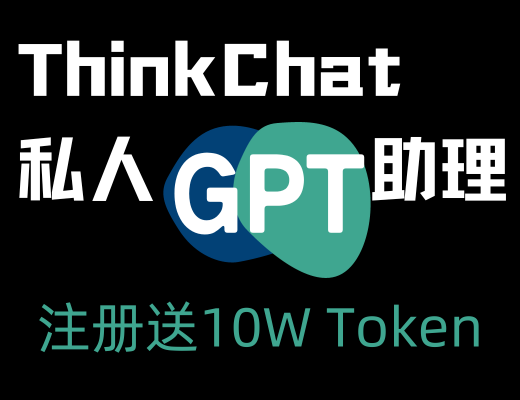# 集合操作概述
[TOC]
Kotlin 标准库提供了用于对集合执行操作的多种函数。这包括简单的操作,例如获取或添加元素,以及更复杂的操作,包括搜索、排序、过滤、转换等。
## 扩展与成员函数
集合操作在标准库中以两种方式声明:集合接口的[成员函数](classes.html#类成员)和[扩展函数](extensions.html#扩展函数)。
成员函数定义了对于集合类型是必不可少的操作。例如,[`Collection`](https://kotlinlang.org/api/latest/jvm/stdlib/kotlin.collections/-collection/index.html) 包含函数 [`isEmpty()`](https://kotlinlang.org/api/latest/jvm/stdlib/kotlin.collections/-collection/is-empty.html) 来检查其是否为空; [`List`](https://kotlinlang.org/api/latest/jvm/stdlib/kotlin.collections/-list/index.html) 包含用于对元素进行索引访问的 [`get()`](https://kotlinlang.org/api/latest/jvm/stdlib/kotlin.collections/-list/get.html),等等。
创建自己的集合接口实现时,必须实现其成员函数。为了使新实现的创建更加容易,请使用标准库中集合接口的框架实现:[`AbstractCollection`](https://kotlinlang.org/api/latest/jvm/stdlib/kotlin.collections/-abstract-collection/index.html)、[`AbstractList`](https://kotlinlang.org/api/latest/jvm/stdlib/kotlin.collections/-abstract-list/index.html)、[`AbstractSet`](https://kotlinlang.org/api/latest/jvm/stdlib/kotlin.collections/-abstract-set/index.html)、[`AbstractMap`](https://kotlinlang.org/api/latest/jvm/stdlib/kotlin.collections/-abstract-map/index.html) 及其相应可变抽象类。
其他集合操作被声明为扩展函数。这些是过滤、转换、排序和其他集合处理功能。
## 公共操作
公共操作可用于[只读集合与可变集合](collections-overview.html#集合类型)。 常见操作分为以下几类:
* [集合转换](collection-transformations.html)
* [集合过滤](collection-filtering.html)
* [`plus` 与 `minus` 操作符](collection-plus-minus.html)
* [分组](collection-grouping.html)
* [取集合的一部分](collection-parts.html)
* [取单个元素](collection-elements.html)
* [集合排序](collection-ordering.html)
* [集合聚合操作](collection-aggregate.html)
这些页面中描述的操作将返回其结果,而不会影响原始集合。例如,一个过滤操作产生一个_新集合_,其中包含与过滤谓词匹配的所有元素。
此类操作的结果应存储在变量中,或以其他方式使用,例如,传到其他函数中。
```kotlin
fun main() {
//sampleStart
val numbers = listOf("one", "two", "three", "four")
numbers.filter { it.length > 3 } // `numbers` 没有任何改变,结果丢失
println("numbers are still $numbers")
val longerThan3 = numbers.filter { it.length > 3 } // 结果存储在 `longerThan3` 中
println("numbers longer than 3 chars are $longerThan3")
//sampleEnd
}
```
对于某些集合操作,有一个选项可以指定 _目标_ 对象。目标是一个可变集合,该函数将其结果项附加到该可变对象中,而不是在新对象中返回它们。对于执行带有目标的操作,有单独的函数,其名称中带有 `To` 后缀,例如,用 [`filterTo()`](https://kotlinlang.org/api/latest/jvm/stdlib/kotlin.collections/filter-to.html) 代替 [`filter()`](https://kotlinlang.org/api/latest/jvm/stdlib/kotlin.collections/filter.html) 以及用 [`associateTo()`](https://kotlinlang.org/api/latest/jvm/stdlib/kotlin.collections/associate-to.html) 代替 [`associate()`](https://kotlinlang.org/api/latest/jvm/stdlib/kotlin.collections/associate.html)。这些函数将目标集合作为附加参数。
```kotlin
fun main() {
//sampleStart
val numbers = listOf("one", "two", "three", "four")
val filterResults = mutableListOf<String>() // 目标对象
numbers.filterTo(filterResults) { it.length > 3 }
numbers.filterIndexedTo(filterResults) { index, _ -> index == 0 }
println(filterResults) // 包含两个操作的结果
//sampleEnd
}
```
为了方便起见,这些函数将目标集合返回了,因此您可以在函数调用的相应参数中直接创建它:
```kotlin
fun main() {
val numbers = listOf("one", "two", "three", "four")
//sampleStart
// 将数字直接过滤到新的哈希集中,
// 从而消除结果中的重复项
val result = numbers.mapTo(HashSet()) { it.length }
println("distinct item lengths are $result")
//sampleEnd
}
```
具有目标的函数可用于过滤、关联、分组、展平以及其他操作。 有关目标操作的完整列表,请参见 [Kotlin collections reference](https://kotlinlang.org/api/latest/jvm/stdlib/kotlin.collections/index.html)。
## 写操作
对于可变集合,还存在可更改集合状态的 _写操作_ 。这些操作包括添加、删除和更新元素。写操作在[集合写操作](collection-write.html)以及 [List 写操作](list-operations.html#list-写操作)与 [Map 写操作](map-operations.html#map-写操作)的相应部分中列出。
对于某些操作,有成对的函数可以执行相同的操作:一个函数就地应用该操作,另一个函数将结果作为单独的集合返回。
例如, [`sort()`](https://kotlinlang.org/api/latest/jvm/stdlib/kotlin.collections/sort.html) 就地对可变集合进行排序,因此其状态发生了变化; [`sorted()`](https://kotlinlang.org/api/latest/jvm/stdlib/kotlin.collections/sorted.html) 创建一个新集合,该集合包含按排序顺序相同的元素。
```kotlin
fun main() {
//sampleStart
val numbers = mutableListOf("one", "two", "three", "four")
val sortedNumbers = numbers.sorted()
println(numbers == sortedNumbers) // false
numbers.sort()
println(numbers == sortedNumbers) // true
//sampleEnd
}
```
- 前言
- Kotlin简介
- IntelliJ IDEA技巧总结
- idea设置类注释和方法注释模板
- 像Android Studion一样创建工程
- Gradle
- Gradle入门
- Gradle进阶
- 使用Gradle创建一个Kotlin工程
- 环境搭建
- Androidstudio平台搭建
- Eclipse的Kotlin环境配置
- 使用IntelliJ IDEA
- Kotlin学习路线
- Kotlin官方中文版文档教程
- 概述
- kotlin用于服务器端开发
- kotlin用于Android开发
- kotlin用于JavaScript开发
- kotlin用于原生开发
- Kotlin 用于数据科学
- 协程
- 多平台
- 新特性
- 1.1的新特性
- 1.2的新特性
- 1.3的新特性
- 开始
- 基本语法
- 习惯用法
- 编码规范
- 基础
- 基本类型
- 包与导入
- 控制流
- 返回与跳转
- 类与对象
- 类与继承
- 属性与字段
- 接口
- 可见性修饰符
- 扩展
- 数据类
- 密封类
- 泛型
- 嵌套类
- 枚举类
- 对象
- 类型别名
- 内嵌类
- 委托
- 委托属性
- 函数与Lambda表达式
- 函数
- Lambda表达式
- 内联函数
- 集合
- 集合概述
- 构造集合
- 迭代器
- 区间与数列
- 序列
- 操作概述
- 转换
- 过滤
- 加减操作符
- 分组
- 取集合的一部分
- 取单个元素
- 排序
- 聚合操作
- 集合写操作
- List相关操作
- Set相关操作
- Map相关操作
- 多平台程序设计
- 平台相关声明
- 以Gradle创建
- 更多语言结构
- 解构声明
- 类型检测与转换
- This表达式
- 相等性
- 操作符重载
- 空安全
- 异常
- 注解
- 反射
- 作用域函数
- 类型安全的构造器
- Opt-in Requirements
- 核心库
- 标准库
- kotlin.test
- 参考
- 关键字与操作符
- 语法
- 编码风格约定
- Java互操作
- Kotlin中调用Java
- Java中调用Kotlin
- JavaScript
- 动态类型
- kotlin中调用JavaScript
- JavaScript中调用kotlin
- JavaScript模块
- JavaScript反射
- JavaScript DCE
- 原生
- 并发
- 不可变性
- kotlin库
- 平台库
- 与C语言互操作
- 与Object-C及Swift互操作
- CocoaPods集成
- Gradle插件
- 调试
- FAQ
- 协程
- 协程指南
- 基础
- 取消与超时
- 组合挂起函数
- 协程上下文与调度器
- 异步流
- 通道
- 异常处理与监督
- 共享的可变状态与并发
- Select表达式(实验性)
- 工具
- 编写kotlin代码文档
- 使用Kapt
- 使用Gradle
- 使用Maven
- 使用Ant
- Kotlin与OSGI
- 编译器插件
- 编码规范
- 演进
- kotlin语言演进
- 不同组件的稳定性
- kotlin1.3的兼容性指南
- 常见问题
- FAQ
- 与Java比较
- 与Scala比较(官方已删除)
- Google开发者官网简介
- Kotlin and Android
- Get Started with Kotlin on Android
- Kotlin on Android FAQ
- Android KTX
- Resources to Learn Kotlin
- Kotlin样品
- Kotlin零基础到进阶
- 第一阶段兴趣入门
- kotlin简介和学习方法
- 数据类型和类型系统
- 入门
- 分类
- val和var
- 二进制基础
- 基础
- 基本语法
- 包
- 示例
- 编码规范
- 代码注释
- 异常
- 根类型“Any”
- Any? 可空类型
- 可空性的实现原理
- kotlin.Unit类型
- kotlin.Nothing类型
- 基本数据类型
- 数值类型
- 布尔类型
- 字符型
- 位运算符
- 变量和常量
- 语法和运算符
- 关键字
- 硬关键字
- 软关键字
- 修饰符关键字
- 特殊标识符
- 操作符和特殊符号
- 算术运算符
- 赋值运算符
- 比较运算符
- 逻辑运算符
- this关键字
- super关键字
- 操作符重载
- 一元操作符
- 二元操作符
- 字符串
- 字符串介绍和属性
- 字符串常见方法操作
- 字符串模板
- 数组
- 数组介绍创建及遍历
- 数组常见方法和属性
- 数组变化以及下标越界问题
- 原生数组类型
- 区间
- 正向区间
- 逆向区间
- 步长
- 类型检测与类型转换
- is、!is、as、as-运算符
- 空安全
- 可空类型变量
- 安全调用符
- 非空断言
- Elvis操作符
- 可空性深入
- 可空性和Java
- 函数
- 函数式编程概述
- OOP和FOP
- 函数式编程基本特性
- 组合与范畴
- 在Kotlin中使用函数式编程
- 函数入门
- 函数作用域
- 函数加强
- 命名参数
- 默认参数
- 可变参数
- 表达式函数体
- 顶层、嵌套、中缀函数
- 尾递归函数优化
- 函数重载
- 控制流
- if表达式
- when表达式
- for循环
- while循环
- 循环中的 Break 与 continue
- return返回
- 标签处返回
- 集合
- list集合
- list集合介绍和操作
- list常见方法和属性
- list集合变化和下标越界
- set集合
- set集合介绍和常见操作
- set集合常见方法和属性
- set集合变换和下标越界
- map集合
- map集合介绍和常见操作
- map集合常见方法和属性
- map集合变换
- 集合的函数式API
- map函数
- filter函数
- “ all ”“ any ”“ count ”和“ find ”:对集合应用判断式
- 别样的求和方式:sumBy、sum、fold、reduce
- 根据人的性别进行分组:groupBy
- 扁平化——处理嵌套集合:flatMap、flatten
- 惰性集合操作:序列
- 区间、数组、集合之间转换
- 面向对象
- 面向对象-封装
- 类的创建及属性方法访问
- 类属性和字段
- 构造器
- 嵌套类(内部类)
- 枚举类
- 枚举类遍历&枚举常量常用属性
- 数据类
- 密封类
- 印章类(密封类)
- 面向对象-继承
- 类的继承
- 面向对象-多态
- 抽象类
- 接口
- 接口和抽象类的区别
- 面向对象-深入
- 扩展
- 扩展:为别的类添加方法、属性
- Android中的扩展应用
- 优化Snackbar
- 用扩展函数封装Utils
- 解决烦人的findViewById
- 扩展不是万能的
- 调度方式对扩展函数的影响
- 被滥用的扩展函数
- 委托
- 委托类
- 委托属性
- Kotlin5大内置委托
- Kotlin-Object关键字
- 单例模式
- 匿名类对象
- 伴生对象
- 作用域函数
- let函数
- run函数
- with函数
- apply函数
- also函数
- 标准库函数
- takeIf 与 takeUnless
- 第二阶段重点深入
- Lambda编程
- Lambda成员引用高阶函数
- 高阶函数
- 内联函数
- 泛型
- 泛型的分类
- 泛型约束
- 子类和子类型
- 协变与逆变
- 泛型擦除与实化类型
- 泛型类型参数
- 泛型的背后:类型擦除
- Java为什么无法声明一个泛型数组
- 向后兼容的罪
- 类型擦除的矛盾
- 使用内联函数获取泛型
- 打破泛型不变
- 一个支持协变的List
- 一个支持逆变的Comparator
- 协变和逆变
- 第三阶段难点突破
- 注解和反射
- 声明并应用注解
- DSL
- 协程
- 协程简介
- 协程的基本操作
- 协程取消
- 管道
- 慕课霍丙乾协程笔记
- Kotlin与Java互操作
- 在Kotlin中调用Java
- 在Java中调用Kotlin
- Kotlin与Java中的操作对比
- 第四阶段专题练习
- 朱凯Kotlin知识点总结
- Kotlin 基础
- Kotlin 的变量、函数和类型
- Kotlin 里那些「不是那么写的」
- Kotlin 里那些「更方便的」
- Kotlin 进阶
- Kotlin 的泛型
- Kotlin 的高阶函数、匿名函数和 Lambda 表达式
- Kotlin协程
- 初识
- 进阶
- 深入
- Kotlin 扩展
- 会写「18.dp」只是个入门——Kotlin 的扩展函数和扩展属性(Extension Functions / Properties)
- Kotlin实战-开发Android
